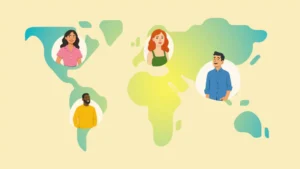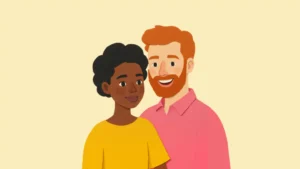What is Diaspora and Identity Conflicts?
Living between cultures can feel like walking a tightrope—trying to balance where you came from with where you are now. For immigrants, expatriates, or NRIs, this can lead to identity conflicts, feelings of isolation, or the pressure to “fit in” while staying true to your roots. Whether it’s navigating cultural expectations, language barriers, or a sense of belonging, these challenges are deeply personal and often complex.
How and Where Does It Show Up?
Diaspora and identity conflicts might show up as confusion about where you belong, tension between family traditions and personal values, or even guilt for leaving your home country. You might feel caught between two worlds, struggling to reconcile your past with your present. These feelings are valid, and they don’t have to be faced alone.
What Are Our Approaches? How Can Therapy Help?
At Talking Distance, we help individuals by taking a collaborative approach, honouring their unique experiences and cultural background. Using choice-based and culturally responsive frameworks, we help you explore your identity, navigate cultural expectations, and create a sense of belonging that feels authentic to you. Whether you’re processing the challenges of migration or redefining your identity, we’re here to support you every step of the way.
FAQs: About Diaspora and Identity Conflicts
Therapy at Talking Distance can help you explore this disconnection and decide how (or if) you want to reconnect in a way that feels meaningful to you.
Therapy can help you set boundaries, honor your values, and create a balance that feels right for you.
Therapy can help you communicate your experiences and navigate these conversations with care and clarity.
Yes. We can explore these feelings and help you reframe them in a way that feels empowering rather than burdensome.
Therapy can help you explore what belonging means to you and create connections that feel genuine and fulfilling.
![Logo [with tagline]-38](https://talkingdistance.com/wp-content/uploads/2025/03/Logo-with-tagline-38-300x138.webp)










